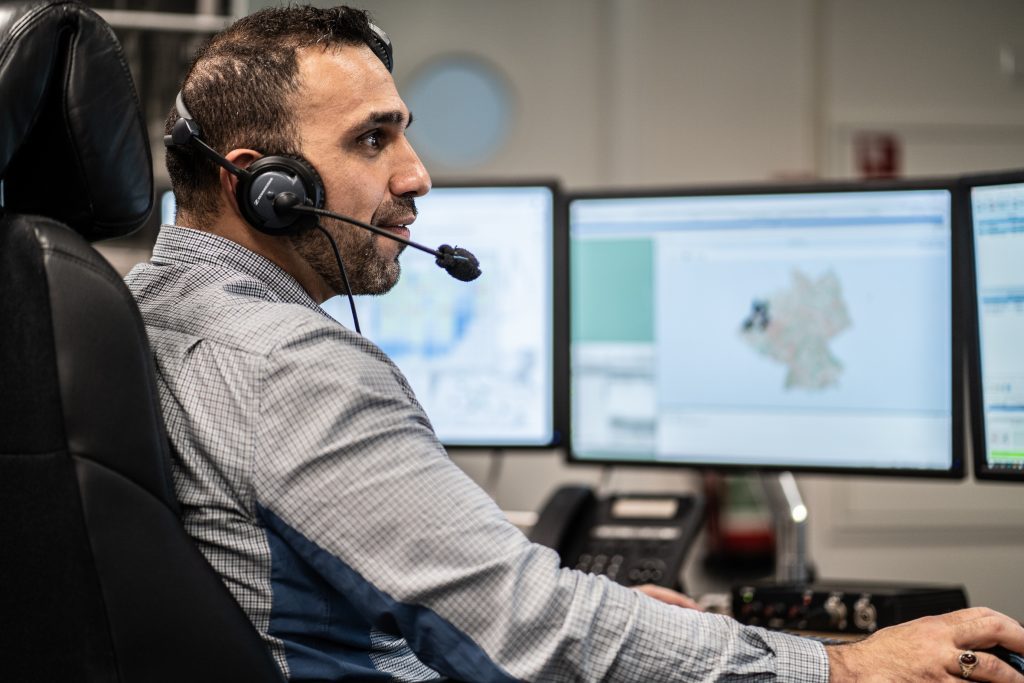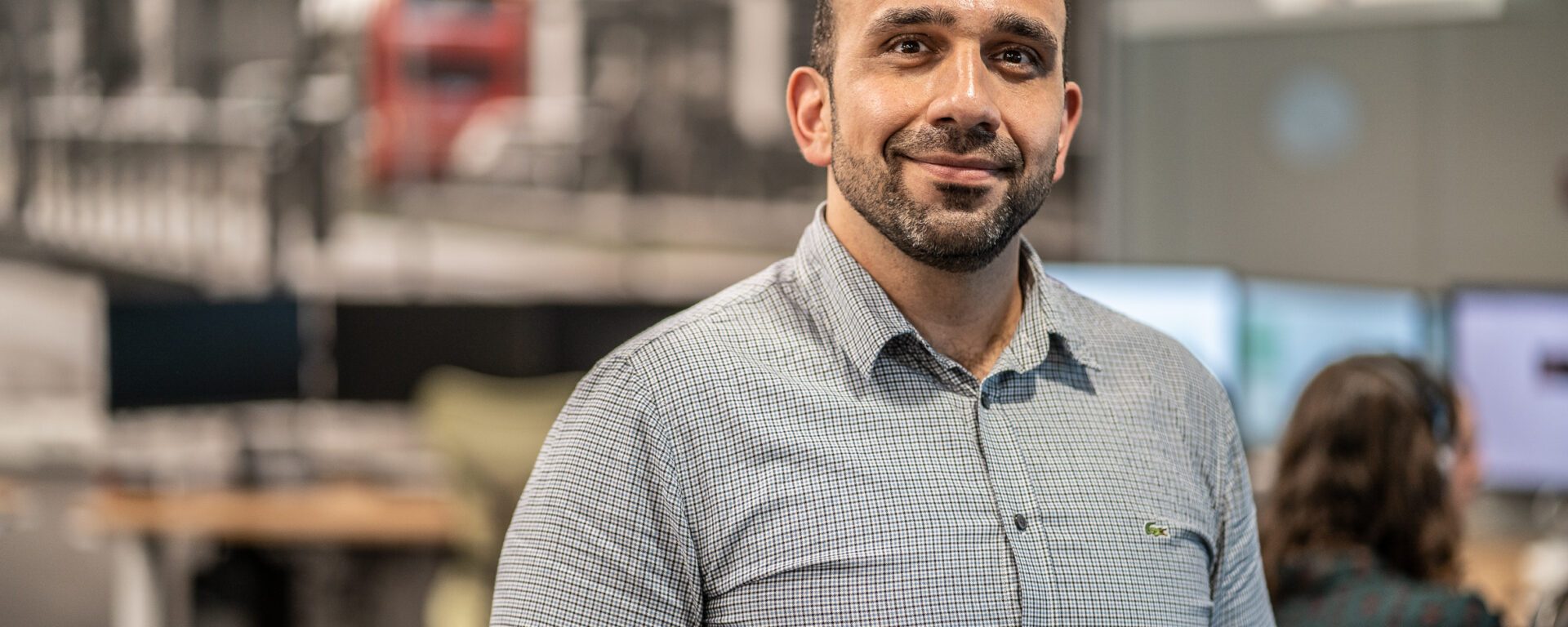Whether it’s a defective bus, a rail obstruction or an incident of violence, the Transdev Operational Control Center in the Netherlands (OCC, or ROV in Dutch) monitors our public transit vehicles and guides them where necessary. All reports from bus and train drivers are received by the OCC.
From the main location in Nieuwegein and the smaller branch in Arnhem, a relatively small group of specialists is on hand 24 hours a day, seven days a week to ensure that everything runs smoothly. Among them is the cheerful and contagiously enthusiastic Amir al Haddad, now active for about three years as an OCC employee: « It really gives a tremendous buzz to make the seemingly impossible possible! »
Amir began his career as Chief Cashier at a bank and developed a love for numbers and data there, he says. « But when I saw that about 300 bus drivers were needed in the Amstelland-Meerlanden (AML) area, I applied. I was ready for something new, » he explains.
After two years of driving, however, Amir thought it was time for another challenge. « For the next nine years I was a MER (Employee Operating Reserve) in Schiphol-North. Ensuring a smooth start-up in the morning, exchanging faulty buses and being the point of contact for colleagues. I got to know so many colleagues there that I still regularly get to talk to someone I know in my current job, » he laughs heartily.
But as much as he enjoyed the work as a MER, he still started looking for the next step in his career. « I was looking for new stimuli. I had already worked as an on-call worker for the OCC during my time as MER, and when my wife started working as an OCC employee in Nieuwegein, she actually got me excited again. So now we both work there. »
On the fourth floor of the office in Nieuwegein, Amir, like his colleagues, is surrounded by multiple monitors displaying a daunting amount of information. « On our screens we can see basically everything. Where the vehicles are, what the ‘SOC’ value is (State of Charge, how full the batteries of an electric vehicle are) and whether they are running according to schedule. Every day we are assigned an area that we are responsible for during our shift, » he explains. And the latter is something he says many drivers don’t seem to realize. « Often people don’t seem to know that with a small group we serve almost the entire country. One day I’m ‘at’ AML, the next it’s the Eindhoven region. Fortunately, I am topographically inclined and know entire areas like the back of my hand without ever having been there, » he says, laughing.
« Our main goal is really to uphold the timetable as much as possible. As few trip cancellations as possible, that’s how we keep everyone happy. Some of the drivers think that ride cancellations are the easy way. It really is a last resort, » Amir notes firmly. « Of course, there are situations where there is no other option. It’s a give and take, but we’re really here for the driver. In the end, we have to do it together. »
And that cooperation, that’s what Amir gets a lot of pleasure out of. « It’s really satisfying to get stalled buses running again, while being on the phone. My experience as a MER has taught me quite a few tricks that are still often useful nowadays, » says Amir proudly. However, not all contact with drivers is light-hearted and pleasant, because the OCC also receives emergency calls: « Unfortunately, that’s part of the job too. I have a lot of sympathy for a driver who is going through something bad; I have been in similar situations myself. Our help in the event of a collision, for example, can mean a lot to the bus driver or train operator. That’s what makes our work so valuable. »
Although the human contact is a nice aspect of the job for Amir, he can also go all out with all the information that the OCC staff have available. As mentioned, he has developed a love for numbers and data, which also comes in handy in his current work: « recently I created a ‘dashboard’ on which my colleagues can access important information in a few clicks, where previously we needed several separate windows. In addition, my input has been requested for the ‘Take Charge’ project, which allows us to use electric buses much more efficiently by providing insight into data. I’m very excited about that. »
That enthusiasm is visible from afar, so it’s not hard to guess that Amir really enjoys this work. Yet he is always looking ahead, he says cheerfully: « I have learned an awful lot in recent years. But I’m also still young and full of ambition, so developing further within Transdev will always be my goal! »


